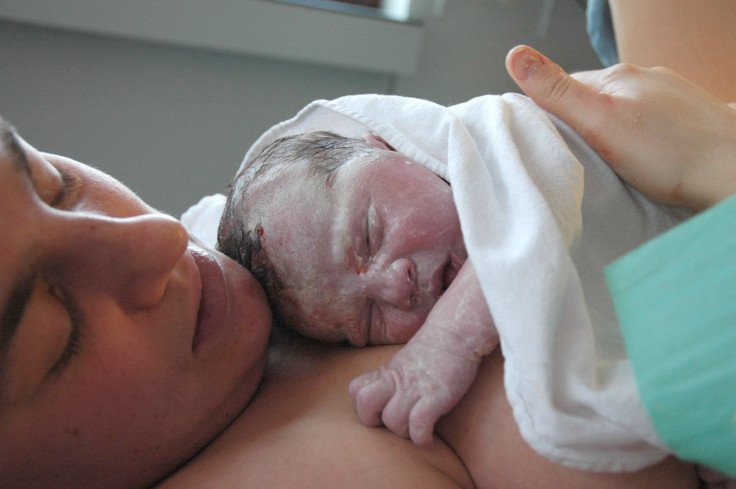Fewer Highly Educated Women Remain Childless In Their 40s, New Analysis Finds

Women appear to be chipping away at the stereotype that being aggressive in the pursuit of higher education and a high-power career means they are less interested in having children. A Pew Research Center analysis of U.S. Census Bureau data, released Thursday, shows that the share of highly educated women who remain childless into their mid-40s has significantly decreased over the past two decades.
Census data show about 22 percent of U.S. women ages 40 to 44 with a master’s degree or higher have no children, down from 30 percent in 1994, Pew says. The decline is more dramatic among women with doctoral degrees: Twenty percent are childless today, while 35 percent were childless in 1994.
Highly educated women are also having more children. Sixty percent of women with at least a master’s degree had two or more children, up from 51 percent in 1994, the Pew analysis found. The U.S. Centers for Disease Control and Prevention define the child-bearing years as ages 15 to 44.
Overall, childlessness among women of all educational backgrounds, who are near the end of their childbearing years, is at its lowest point in a decade. But while motherhood among highly educated women has increased, those women are still more likely to be childless and to have fewer children than women with lower levels of education.
The Pew analysis follows fertility data released last month by the Census Bureau that show a sharp increase in childlessness for women in their late 30s, without respect to education. Around 18.5 percent of women 35 to 39 were childless last year, up from 17.2 percent in 2012, the Wall Street Journal reported. The overall trend shows that American families are shrinking in size.
In 1976, 36 percent of all U.S. women in their early 40s had given birth to four or more children. By 2014, 35 percent of all women ages 40 to 44 had only two children, while just 12 percent had four or more. One-child families have grown to 18 percent, up from 10 percent in 1976, Pew says.
There are some significant differences in female fertility by race and ethnicity. While 17 percent of white women ages 40 to 44 are childless, only 15 percent of black women, 13 percent of Asian women and 10 percent of Hispanic women are childless at the end of their child-bearing years. Hispanic and black mothers ages 40 to 44 were more likely to have larger families, while white and Asian mothers had fewer children.
© Copyright IBTimes 2025. All rights reserved.






















